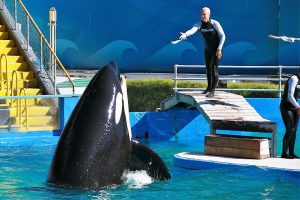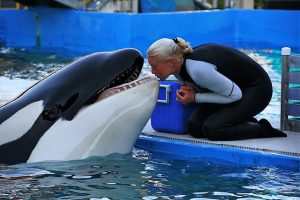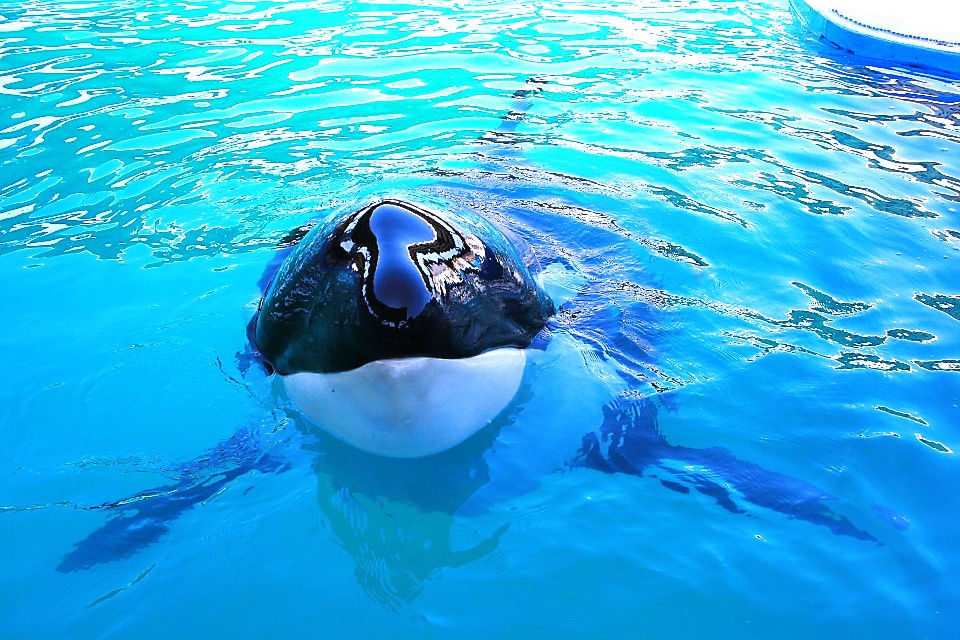Exclusively for zoos.media – 19th of August in 2023. Author: Philipp J. Kroiss
The death of orca Lolita, also known as Tokitae or Toki, raises questions concerning the quality of her care and the honesty of the whole project to “release” her.
Lolita: Was it a fraud from the start?
Yesterday, Lolita died from “what is believed to be a renal condition”. This was as much as a surprise as it is sad. Primarily, it’s surprising because a recently published health examination was apparently done just a few days before.
Since our press conference on February this year, when we announced Lolita will return to the ocean, great milestones have been achieved. We will have regular reports of Lolita, including her activities, food, health and the work from her Care Takers. Thanks for sharing the dream pic.twitter.com/1TOX9toSQ1
— Miami Seaquarium (@MiamiSeaquarium) August 15, 2023
Can a kidney disease develop so fast?

There is no explanation by Miami Seaquarium why the team of caretakers was surprised by that. Usually, in geriatric mammals, you do regular blood tests by looking especially at the kidney function. In this context, eGFR and eCCr are important to monitor, for example. Animals as well as humans can survive years with a non-ideal renal condition. There are five stages assumed that mammals go through during the course of the disease. But even in the last, survival is usually a question of weeks, not days or hours. While humans can get a kidney donation to replace the organ, orcas, of course, can’t.
So, because of proper medical monitoring, experienced veterinarians would most likely be able to see it – especially, when they did a big examination, which appears to be the basis of the most recent press release before her death. However, it should not be denied that there is a small chance of very rapid and sudden deterioration. If the animal is not frequently monitored, the vets may not have noticed this but then the medical monitoring would simply not have been as good as claimed.
Friends of Toki, an animal rights organization lacking experts and professionals, were in charge to care for her. People supporting this project already failed concerning Keiko. Also, he was neglected and, in the end, died from the incompetence of his caretakers that didn’t monitor the orca properly which was why they didn’t realize his suffering. The other alternative to this theory concerning Lolita is that they already knew it but never communicated it. This would mean the whole project was just a fraud to do marketing and collect donations.
There was no plan

Then, suddenly, a detail would make a whole lot of sense about what many people already wondered about before. The joint venture aiming to bring Lolita to a net cage, never properly tried to get approval for that. To the press, they talked about a plan but nothing was ever presented to the National Oceanic and Atmospheric Administration (NOAA) or other governmental representatives. Firstly, they would have to approve that. However, without such an approvals, Lolita would never be transported anywhere. The activists never really tried to get one.
If they knew, she had this renal condition, they could have calculated that they wouldn’t have to invest money and time to contact officials. Now, they just act surprised to mask that all of this was a fraud from the start. The group would have betrayed the public, the media, and many people loving Lolita. Considering that the animal rights industry is known for fraud to get donations, this theory is not unlikely.
Transparency would be the answer

Concerning these most likely theories as well as other theories circulating in the marine mammal community worldwide, transparency would be the best answer. The problem is that the whole project is massively intransparent. This was criticized before and is now criticized even more: Was the care team qualified enough to do and evaluate blood tests on a geriatric orca? Did they cover up her disease to collect some more financial and ideological support? Was it a fraud from the start?
These are urgent questions that need to be answered. Stress contributes to kidney problems as well as poor-quality fish. The latter was found at Miami Seaquarium before and it’s not a surprise that all these changes that were made in her care caused stress. So, it’s also important to investigate this. Miami Seaquarium lost a lot of trust, so it would be better to allow an independent analysis from which the company and the facility could learn.
Normally, necropsy results and blood test results don’t need to be published in the US but in other countries, dolphinariums share medical data with the public. So, Miami Seaquarium could follow this example because the fate of Lolita is important to many people. Not going through the whole process transparently would be a big mistake. In order to gain back trust, Dolphin Company, which owns not only Miami Seaquarium, has to evaluate all this without secrecy.
Cooperating with the animal rights industry leads to death
Lolita touched the heart of millions of people. Those, who truly loved her and weren’t abusing her to get donations or some kind of marketing, will always remember her for her unique character and the way she loved to interact with humans in different ways. She grew very old in the care of her loved ones, she died quickly in the care of animal rights activists. That’s a pattern that can be seen in the USA increasingly often because some zoos and aquariums started to cooperate with the animal rights industry.
Lolita taught millions of people lessons on orca biology, conservation, and even more aspects. It’s important that zoo officials in the United States now listen to the last lesson she gave and also Keiko’s case taught the whole world: concerning the survival of individual animals and species, the animal rights industry, that only cares for money, is not and will never be the right partner. Miami Seaquarium made big mistakes in the past that could be prevented by learning from the past. It’s time to face this unpleasant truth to prevent more mistakes.
